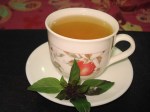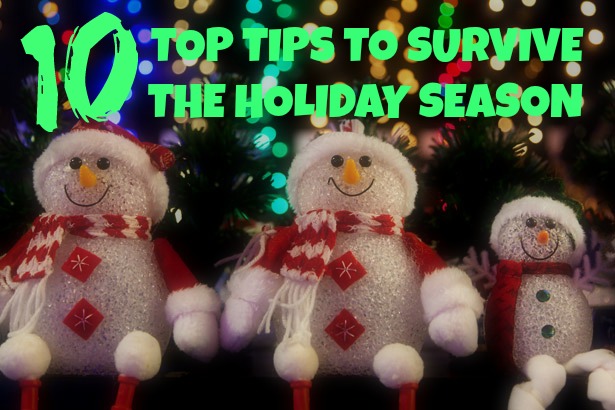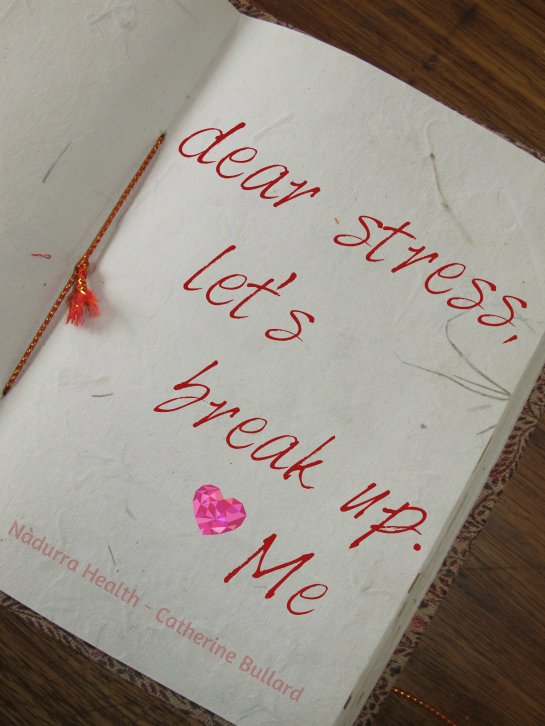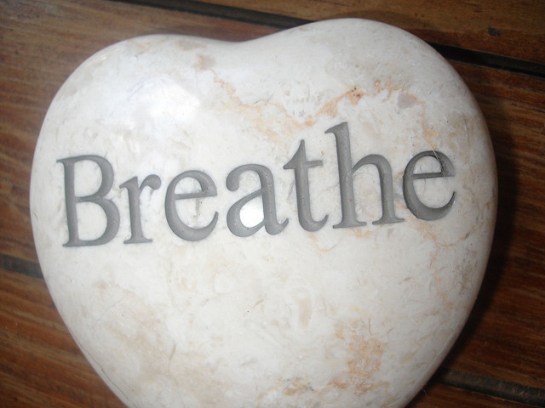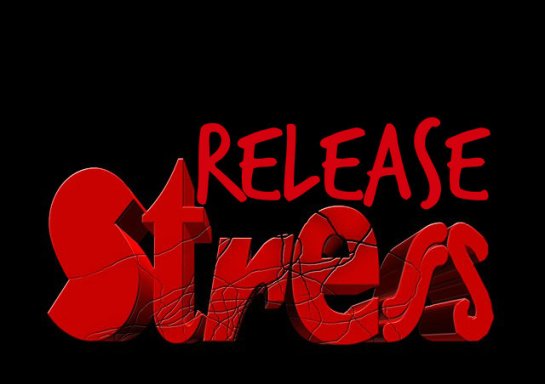Have you ever heard of the vagus nerve? It’s one of the most important nerves in your body. When it’s healthy and stimulated it can help you reduce stress, improve your mood and boost your immune system. Even if you’ve never heard of it, you need to know about the vagus nerve if you want to improve your health.
What is the Vagus Nerve?
The vagus nerve is the longest and most complex cranial nerve in your body. It carries signals to and from your brain to many vital organs, including your heart, blood vessels, lungs, stomach, intestines, vocal chords and more. It is part of the autonomic nervous system (ANS) which plays a role in controlling and regulating involuntary functions like breathing, heartbeat, mood, digestion, and blood pressure.
The ANS has two main branches: the sympathetic nervous system (SNS) and the parasympathetic nervous system (PNS). The sympathetic branch is responsible for activating the “fight or flight” response when you face a threat or a challenge. It stimulates your adrenal glands to release adrenaline and cortisol, which increases your heart rate, blood pressure, blood sugar, and alertness. This helps you immediately cope with the challenging situation, but it also puts a lot of stress on your body.
The parasympathetic branch is responsible for activating the “rest and digest” response which kicks in to calm your body down and restore balance once the threat or challenge is over. By stimulating the vagus nerve we get greater calming effects by the PNS.
The vagus nerve is the main component of the PNS, and it acts as a bridge between your brain and your body. It sends signals from your brain to your organs to regulate their functions, and feedback from your organs to your brain with information about your physical and emotional state. The vagus nerve is like a two-way communication channel that helps you maintain homeostasis, a state of equilibrium and harmony in your body.
Maintaining balance between the PNS and SNS is crucial for your physical and mental health.
How the Vagus Nerve Affects Your Health and Wellbeing
The vagus nerve influences many aspects of your physiology and psychology and has a profound impact on your health and well-being.
Here are some of the benefits of having a healthy and active vagus nerve:
Reduce Stress and Anxiety
The vagus nerve plays a big role in regulating your stress response, which lowers your heart rate, blood pressure, breathing rate, and cortisol levels. Cortisol is a hormone released by your adrenal glands in response to stress, and it can have negative effects on your health if it’s chronically elevated. The vagus nerve can also help you cope with emotional stress by enhancing your social skills, empathy, compassion, and trust.
The vagus nerve protects your body by helping it switch back and forth from the fight-flight response and the rest-digest mode.
Improve Your Mood and Mental Health
The vagus nerve stimulates production of neurotransmitters serotonin and oxytocin which are associated with happiness and well-being. Serotonin is a chemical that regulates your mood, appetite, sleep, memory, and learning. Oxytocin is a hormone that promotes bonding, love, and social connection. The vagus nerve increases your resilience and optimism to help prevent or treat depression.
Boost Your Immune System and Reduce Inflammation
Inflammation is a natural response to injury or infection, but it can also cause damage to your tissues and organs when it’s chronic or excessive. The vagus nerve can activate the cholinergic anti-inflammatory pathway (CAP), which is a mechanism that suppresses inflammation in your body. It also helps you fight off infections and diseases by enhancing your immune system’s function and reducing inflammation.
Enhance Your Cognitive Abilities and Memory
Brain power improves when a healthy vagus nerve delivers increased blood flow and oxygen to your brain cells to sharpen focus, attention, creativity, problem-solving skills and memory. It can also stimulate neurogenesis, the creation of new neurons, in the hippocampus, which is a part of your brain that is involved in learning and memory.
Support Digestive Health and Metabolism
The signals sent via the vagus nerve from your brain to your stomach and intestines regulate appetite and digestion. They can also control the secretion of gastric acid, enzymes, hormones, and bile that are essential for breaking down food and absorbing nutrients. This helps prevent and treat digestive disorders like irritable bowel syndrome (IBS), acid reflux, ulcers, constipation, and diarrhea.
Improve Heart Health and Cardiovascular Function
Heart rate variability (HRV) is a measure of how much your heart rate changes from beat to beat. A high HRV indicates that you have a flexible and adaptable heart that can respond to changing demands. A low HRV indicates that you have a rigid and stressed heart that is more prone to arrhythmias and cardiovascular diseases. The vagus nerve can help lower your risk of heart attack, stroke, and hypertension by increasing your HRV and improving your cardiovascular function.
How to Activate Your Vagus Nerve
As you can see, the vagus nerve is a powerful ally for your health and well-being. But how do you activate it and reap its benefits? The good news is that there are many simple and natural ways to stimulate your vagus nerve and enhance its function.
Here are some of the most effective methods:
Deep Breathing
Breathing deeply and slowly in through your nose and out your mouth is an excellent way to stimulate your vagus nerve. It activates your PNS and increases your HRV. It can lower your heart rate and blood pressure and calm your nervous system. Practice deep breathing by inhaling through your nose for four seconds, holding your breath for four seconds, exhaling through your mouth for four seconds, and pausing for four seconds. Repeat this cycle for a few minutes and notice how you feel.
Mindfulness and Meditation
Meditating is a great way to calm your mind and body by reducing stress, anxiety and negative emotions. It helps you focus on the present moment to reduce negative thoughts and challenging emotions that trigger stress. Combine it with deep breathing for greater benefits. Through meditation we increase our awareness of the present moment which can help you regulate your physiological and psychological responses.
Practice mindfulness by fine-tuning your awareness to notice whatever is going on around or within you, without judgement.
Practice meditation by sitting comfortably, closing your eyes, and focusing on your breath, a mantra, a sound, or a sensation. Whenever your mind wanders, gently bring it back to your focus point.
Humming or Singing Loudly
Humming or singing can stimulate your vagus nerve by activating your vocal cords and diaphragm. It can also increase your production of nitric oxide, which is a molecule that dilates your blood vessels and improves blood flow to your brain and organs. Hum or sing any tune that you like or try chanting “om” or “ahh”, which are sounds that resonate with your vagus nerve.
Laughing
Laughing can trigger your vagus nerve by engaging your facial muscles and diaphragm. It can also release endorphins, which are natural painkillers and mood boosters. Laugh by watching a funny show, reading a humorous book, or sharing jokes with friends.
Cold Shower
Exposing yourself to cold water or cold air stimulates your thermoreceptors, the nerve endings that detect changes in temperature. It also increases your metabolism, immune system and antioxidant levels. Take a cold shower by gradually lowering the temperature of the water until it’s comfortable but challenging. You could also try splashing cold water on your face or dipping your feet in ice water.
Positive Social Relationships
Having positive social relationships can stimulate your vagus nerve by enhancing your emotional and social intelligence. It also increases your oxytocin and serotonin levels, which promote bonding, trust and happiness. Cultivate positive social relationships by spending time with people who support you, care for you and make you feel good. Expressing gratitude, appreciation and affection to the people in your life also activates the vagus nerve.
Tai Chi and Yoga
Tai chi is a form of martial arts involving slow, graceful movements that coordinate with breathing and mental focus. It stimulates your vagus nerve by improving balance, coordination, flexibility, and circulation. It can also reduce your stress, anxiety and depression. Practice tai chi or yoga by joining a class, watching a video, or following an app.
Probiotics
The vagus nerve is the main channel for conveying messages between the gut to the brain, including threatening feelings or ‘gut instincts’. When your gut is functioning poorly bad gut microbes overgrow and cause inflammation. Probiotics are beneficial bacteria and yeasts that live in your gut and help you digest food and produce vitamins and neurotransmitters. They communicate with your brain via the vagus nerve and influence your mood, thinking, and behavior. Taking probiotic supplements increases the number of good bacteria in your gut.
Consume probiotics by eating fermented foods like yogurt, kefir, sauerkraut, kimchi, miso, tempeh, or kombucha. Or take probiotic supplements that contain strains like Lactobacillus and Bifidobacterium.
Intermittent Fasting
Fasting is the practice of abstaining from food for a certain period of time. It activates your vagus nerve by reducing inflammation, oxidative stress, and insulin resistance. It can also help you recycle damaged cells, and stimulate ketosis which is the state of burning fat instead of glucose for energy. Practice intermittent fasting by skipping breakfast and eating only within an eight-hour window. Alternatively do a 24-hour fast once a week.
Zinc
Zinc is a mineral essential for many functions in your body, including immune system, wound healing, DNA synthesis and enzyme activity. It also modulates your vagus nerve by regulating neurotransmitter and hormone levels.
You can get zinc from certain foods including oysters, beef, pumpkin seeds, lentils, and dark chocolate. You can also take zinc supplements containing 15 to 30 mg of zinc per day. Many Australians are zinc deficient and so need supplements, because Australian soil is particularly low in zinc, which then affects the amount of zinc available from food sources.
Massage
Reflexology is massage of the feet and research shows it increases vagus nerve tone and improves blood pressure. Have a professional reflexology treatment and rub your feet, stretch your toes and rotate your ankles at other times.
Signs Your Vagus Nerve is Suffering
Those are just some ways you can activate your vagus nerve and enjoy its benefits for your health and well-being. However, you should also be aware of the signs that indicate that your vagus nerve may be malfunctioning or damaged.
Some of these signs are:
- Abdominal pain and bloating
- Acid reflux or heartburn
- Elevated heart rate and blood pressure
- Dizziness or fainting
- Loss of gag reflex or difficulty swallowing
- Hoarseness or loss of voice
- Loss of appetite or nausea and vomiting
- Tight or sore muscles
- Racing thoughts or anxiety
If you experience any of these symptoms, you should consult your doctor and get a proper diagnosis and treatment.
I hope you learned something new and useful from this blog post. Remember, your vagus nerve is a powerful connection between your brain and your body that can influence your health and well-being in many ways. By stimulating your vagus nerve, you can change your body chemistry and improve your mindset.
So, try some of the methods I’ve mentioned and see how they work for you. And don’t forget to share your feedback and questions in the comments section below. Thanks for reading and have a great day!
DISCLAIMER
All information and opinions presented here are for information purposes only and are not intended as a substitute for professional advice. Do not use this article to diagnose a health condition. Speak to your doctor if you think your condition may be serious or before discontinuing any prescribed medication. Please consult with your health care provider before following any of the treatment suggested anywhere on this site, particularly if you have an ongoing health issue.
















